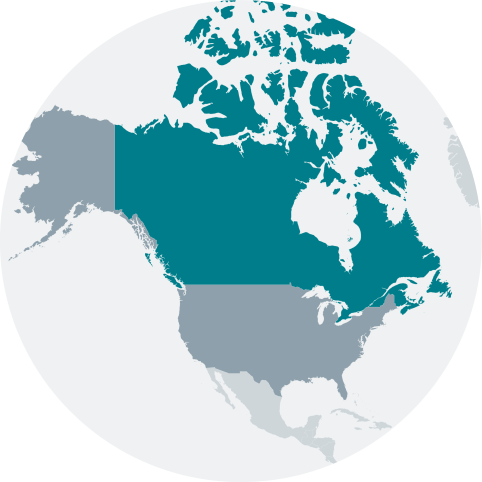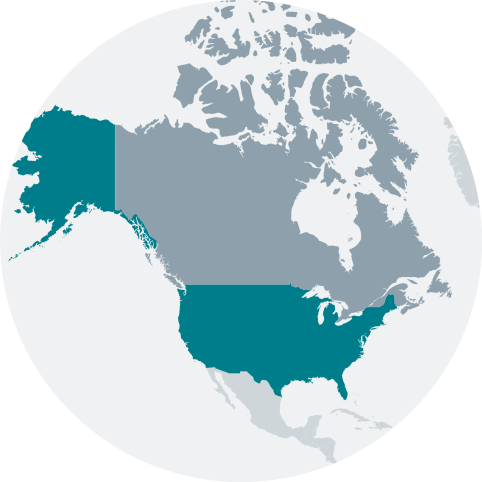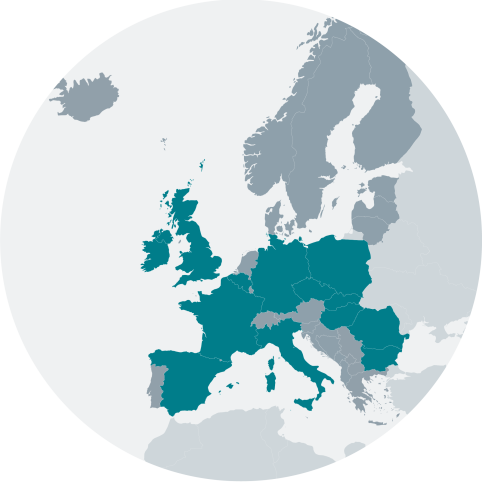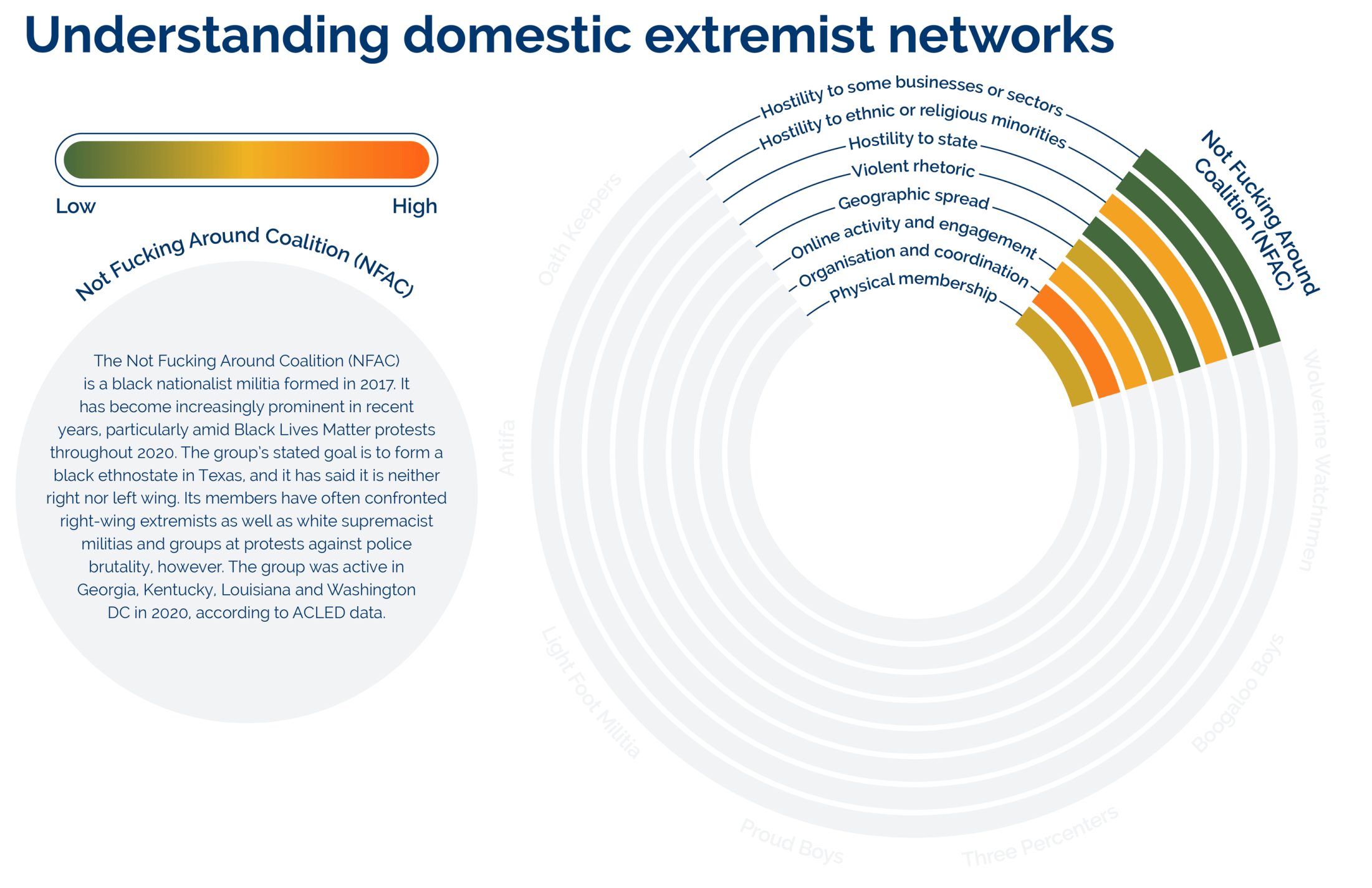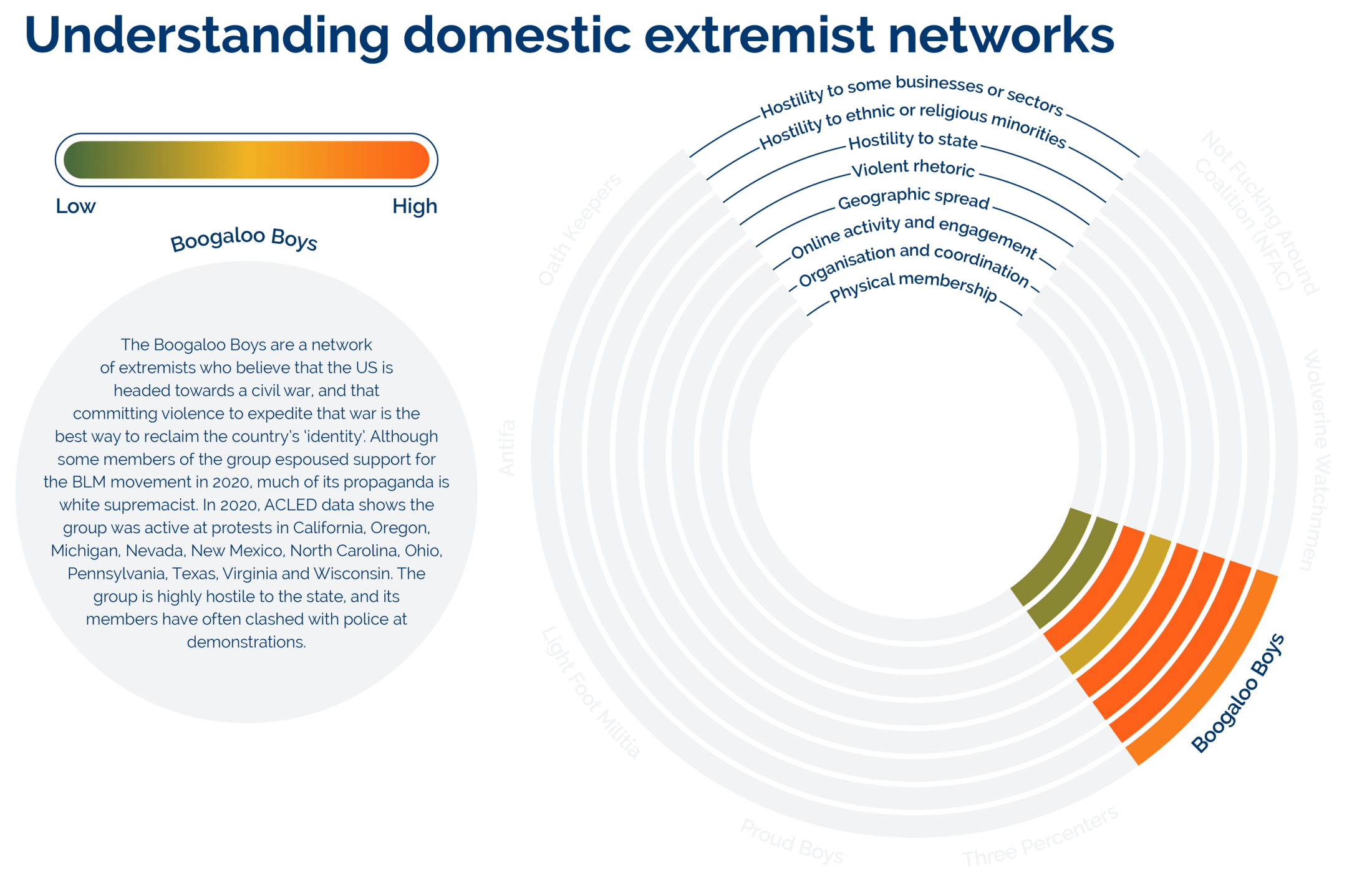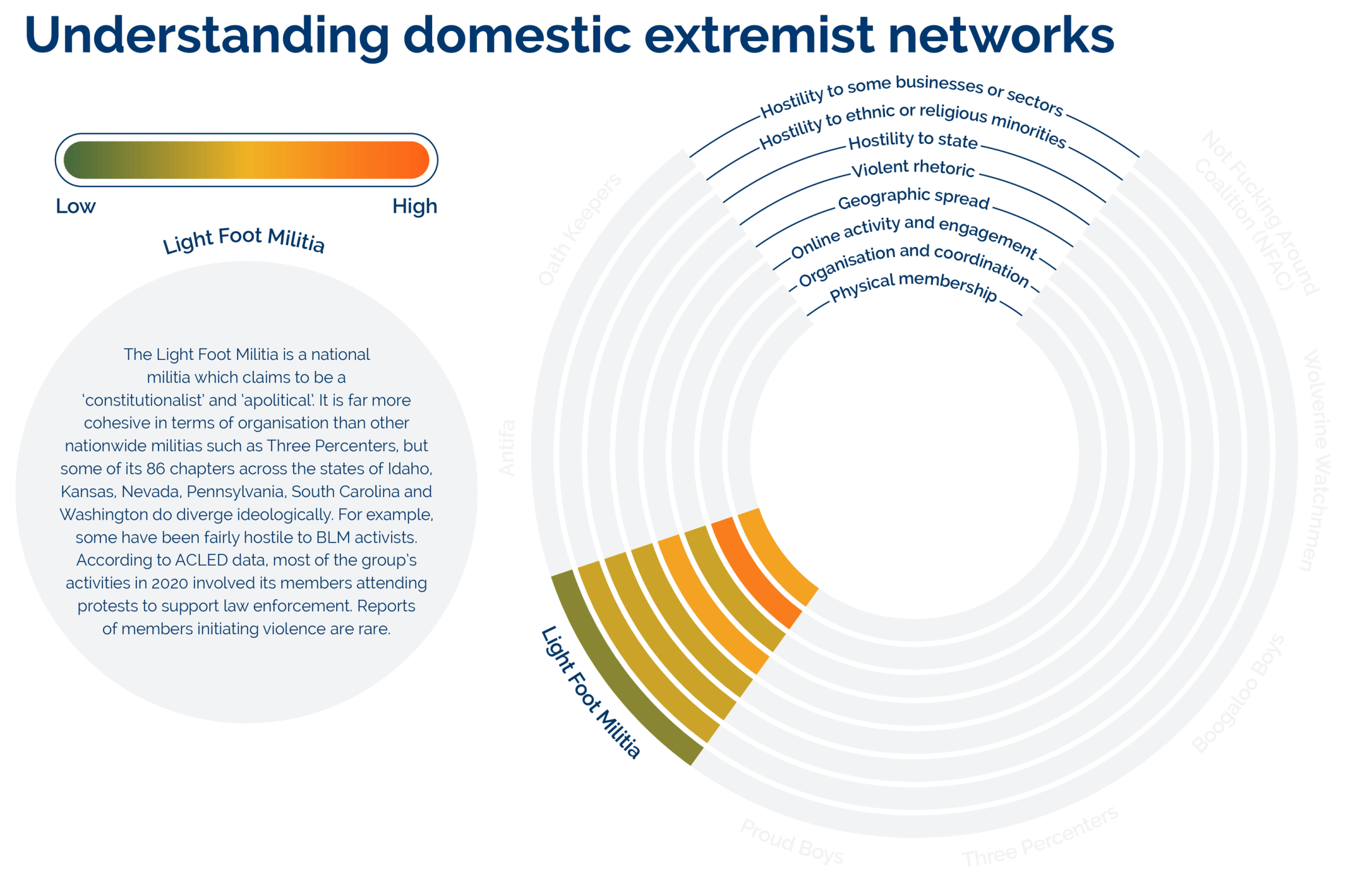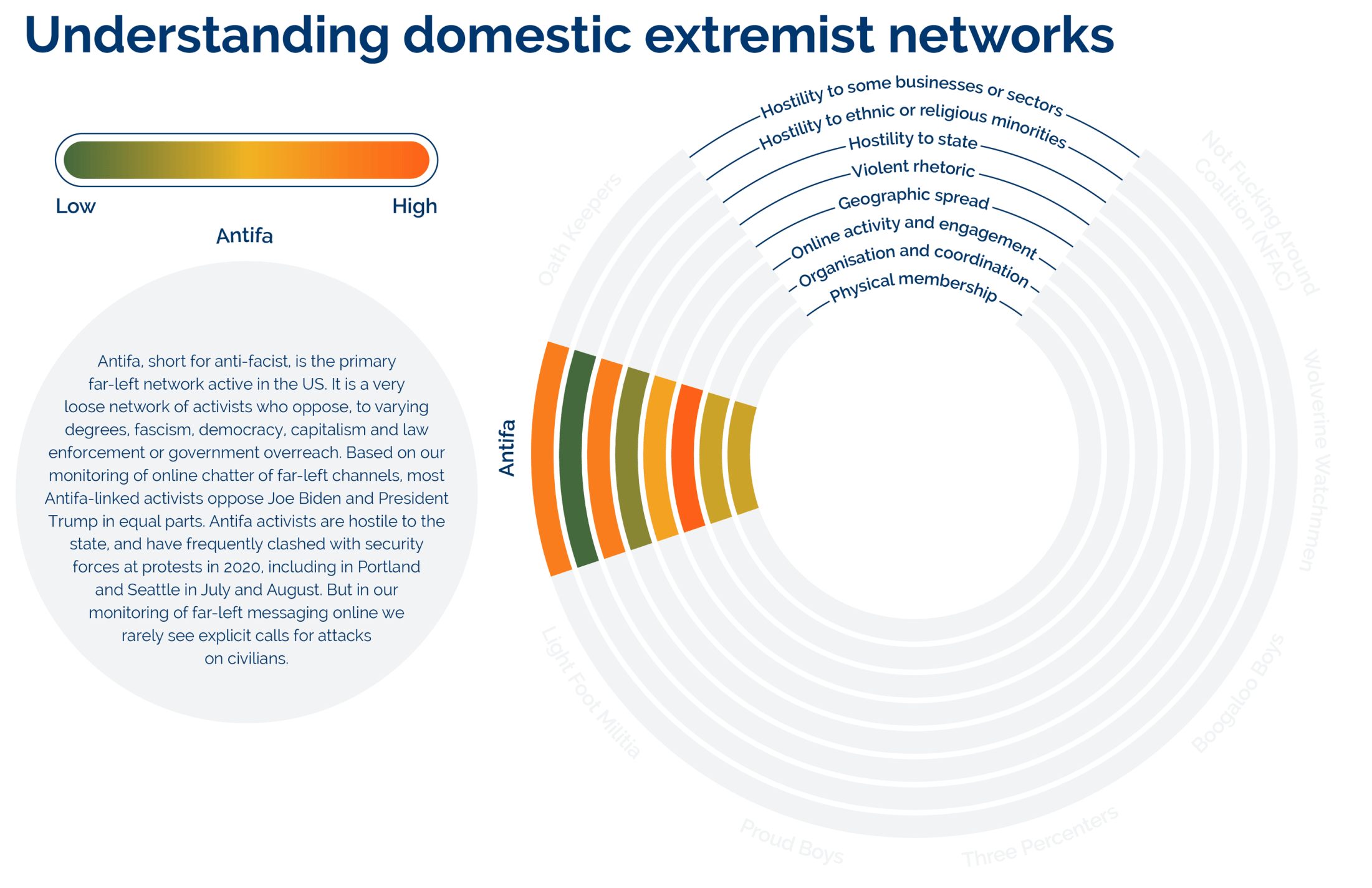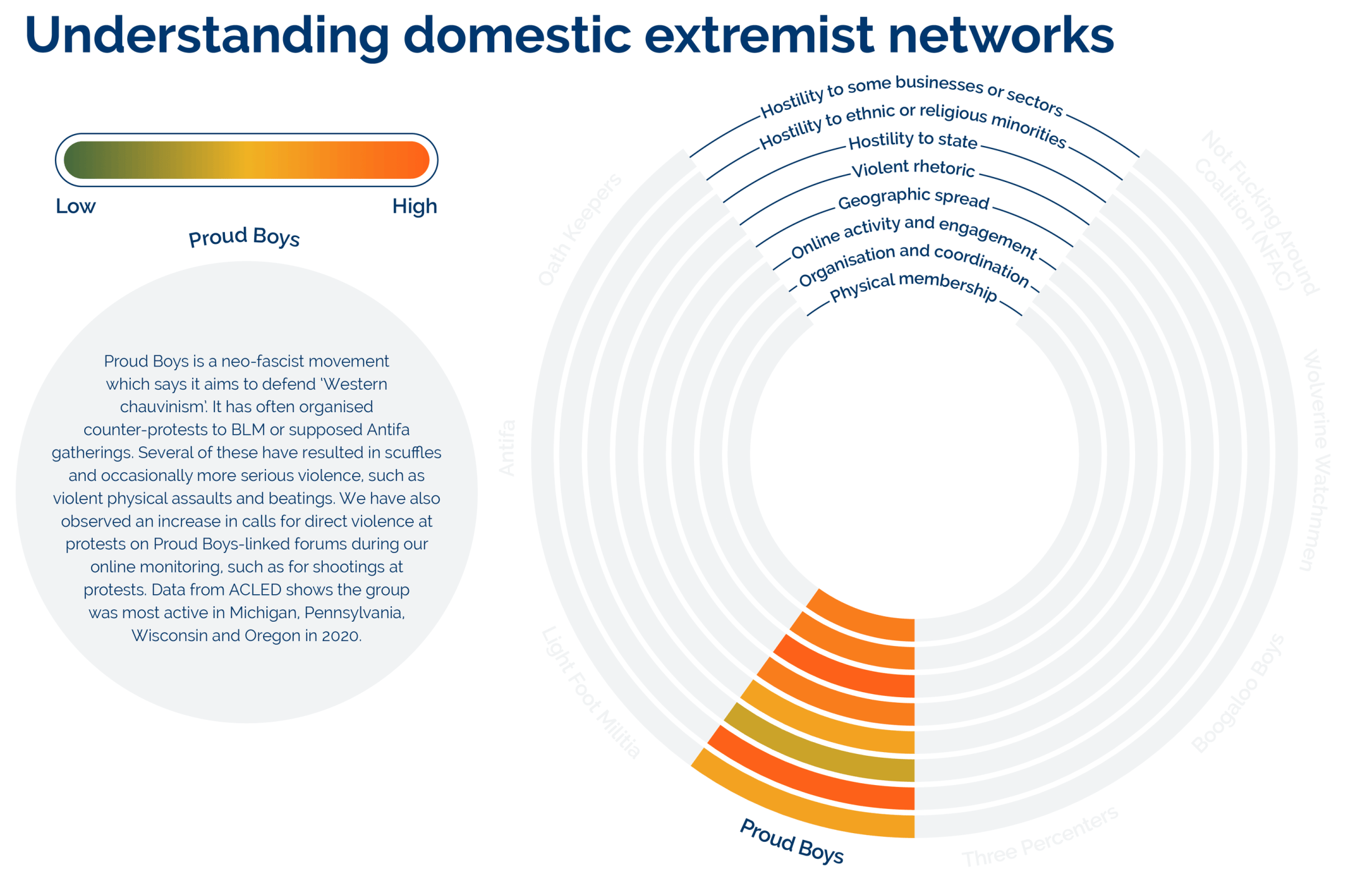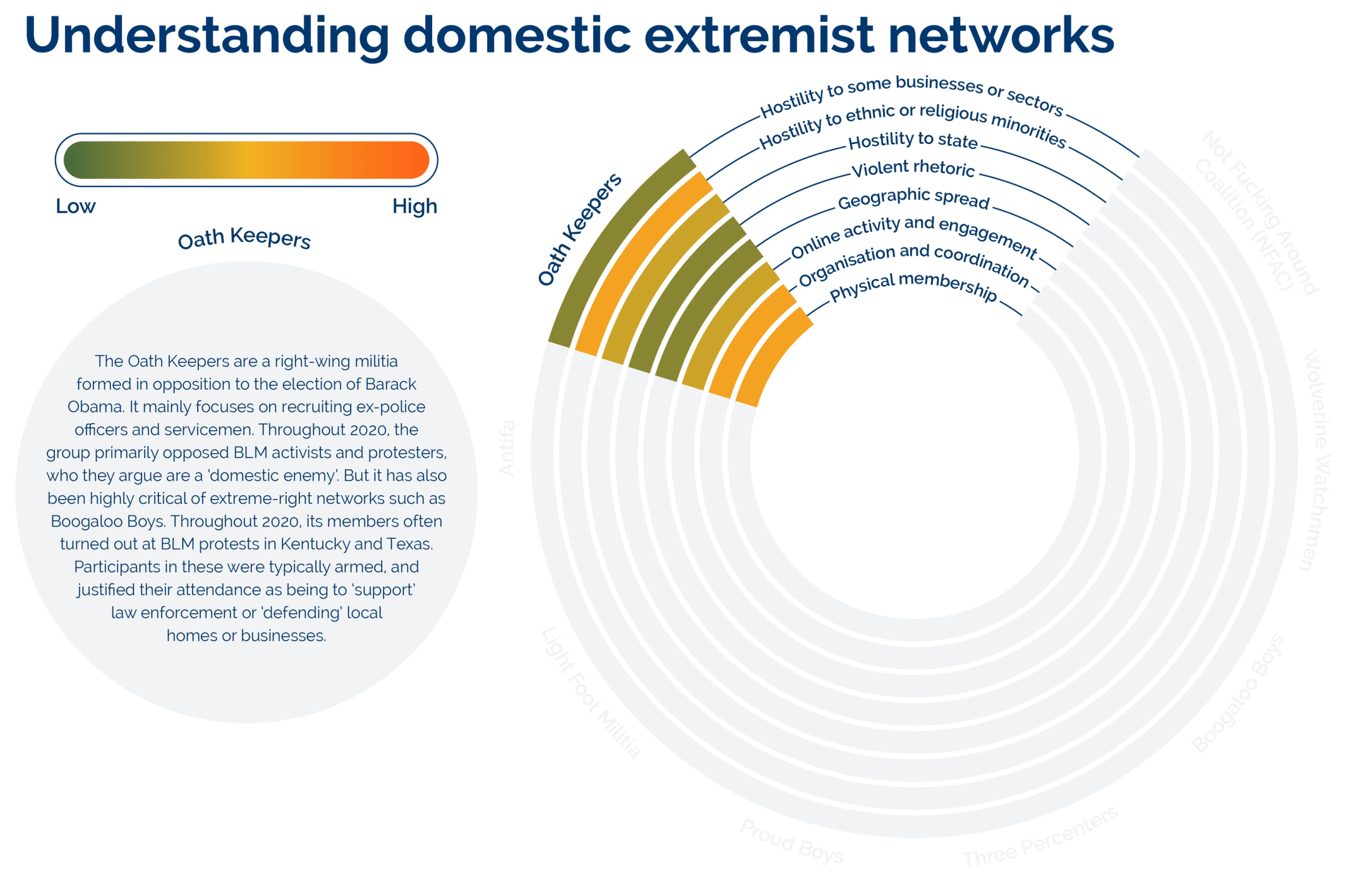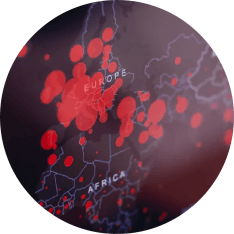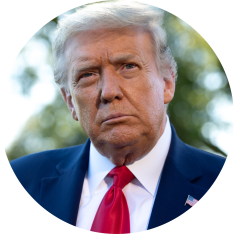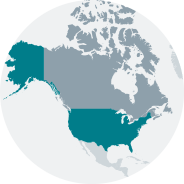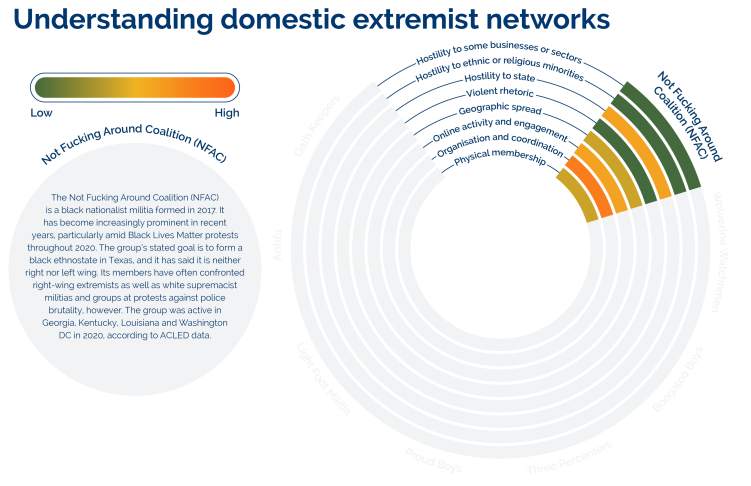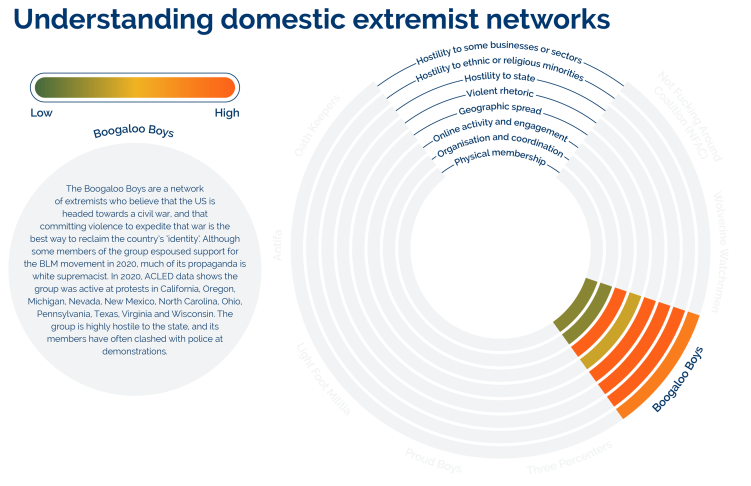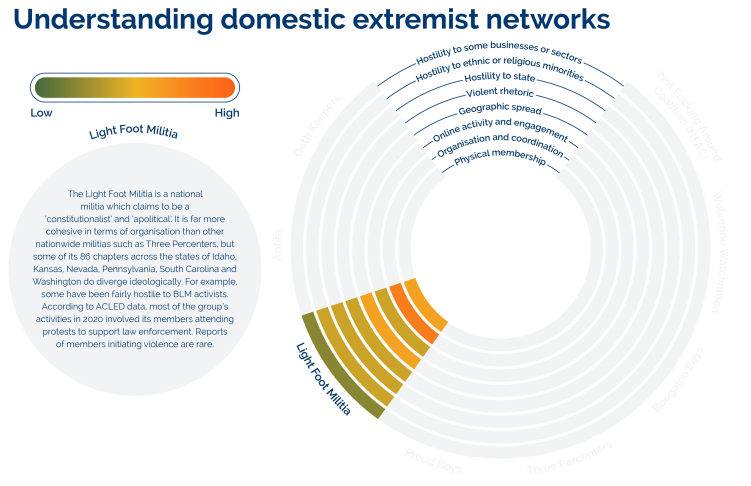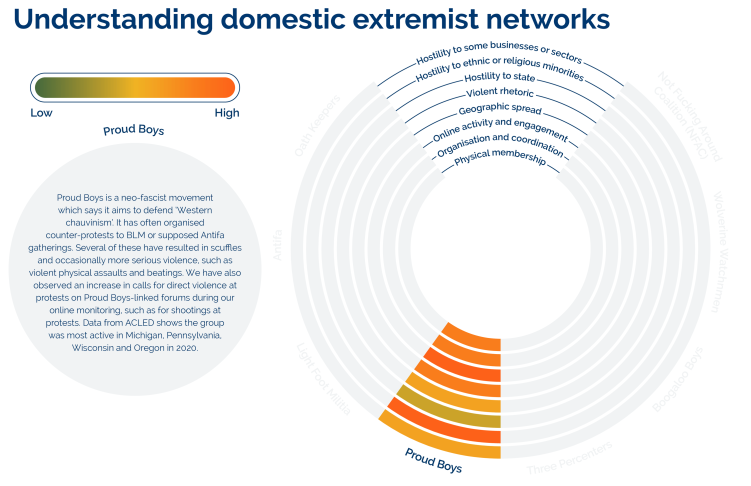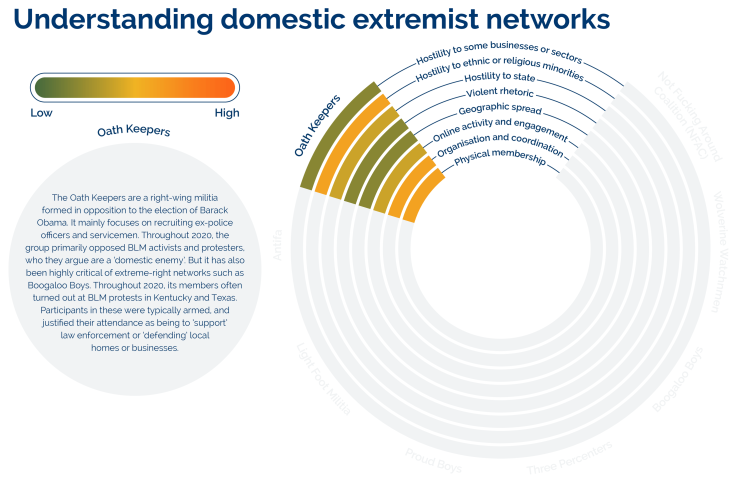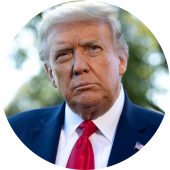

CONSISTENT
WORSENING
IMPROVING

Overall trend: Worsening
Image: Jim Watson/Getty Images
The Biden administration inherits a country in crisis, and assumes nominal global leadership at a critical point. At the time of writing, official data showed that more than 360,000 people had died in the US due to Covid-19 – more than any other country. It also leads in the total number of active cases, with almost four times as many as any
other country.
Civil disquiet marked 2020, with more than 18,000 protests taking place across the country, according to our partner, the Armed Conflict Location & Event Data Project. The presidential election yielded the highest number of votes in US history but further exposed the degree of polarity and hyperpartisanship that besets political discourse
in America. On the global stage US alliances
have frayed and US-led-multilateral institutions
are weakening.
Mr Trump’s political style has served as an aggravator and unsettler in domestic and foreign policy issues since 2016. In foreign policy, his comments on Twitter and other unscripted remarks about actors such as NATO or South Korea have undermined the US’ commitment to its allies, and with it the foreign policy linchpin of credible deterrence and security guarantees. His firebrand rhetorical style has also exacerbated domestic crises. His refusal to acknowledge the legitimacy of the demands of racial inequality protesters worsened social tensions in 2020, as but one
such example.
The tone of the Biden administration in its dealings at home, and indeed abroad, is likely to be radically different to that of Mr Trump. And it seems likely that a key objective of Mr Biden will be to rebuild faith in government and a sense of national unity in crisis. Besides the election and its controversies, the key drivers of tumult in the US in 2020 were the pandemic, its effect on the economy, and racial inequality. A vaccine for Covid-19 currently looks on track to be widely available by mid-2021, but it is highly unlikely that Mr Biden will be able to nullify the other two issues. Restoring a
perception that the government is addressing
them will probably mean they are less explosive on the streets.
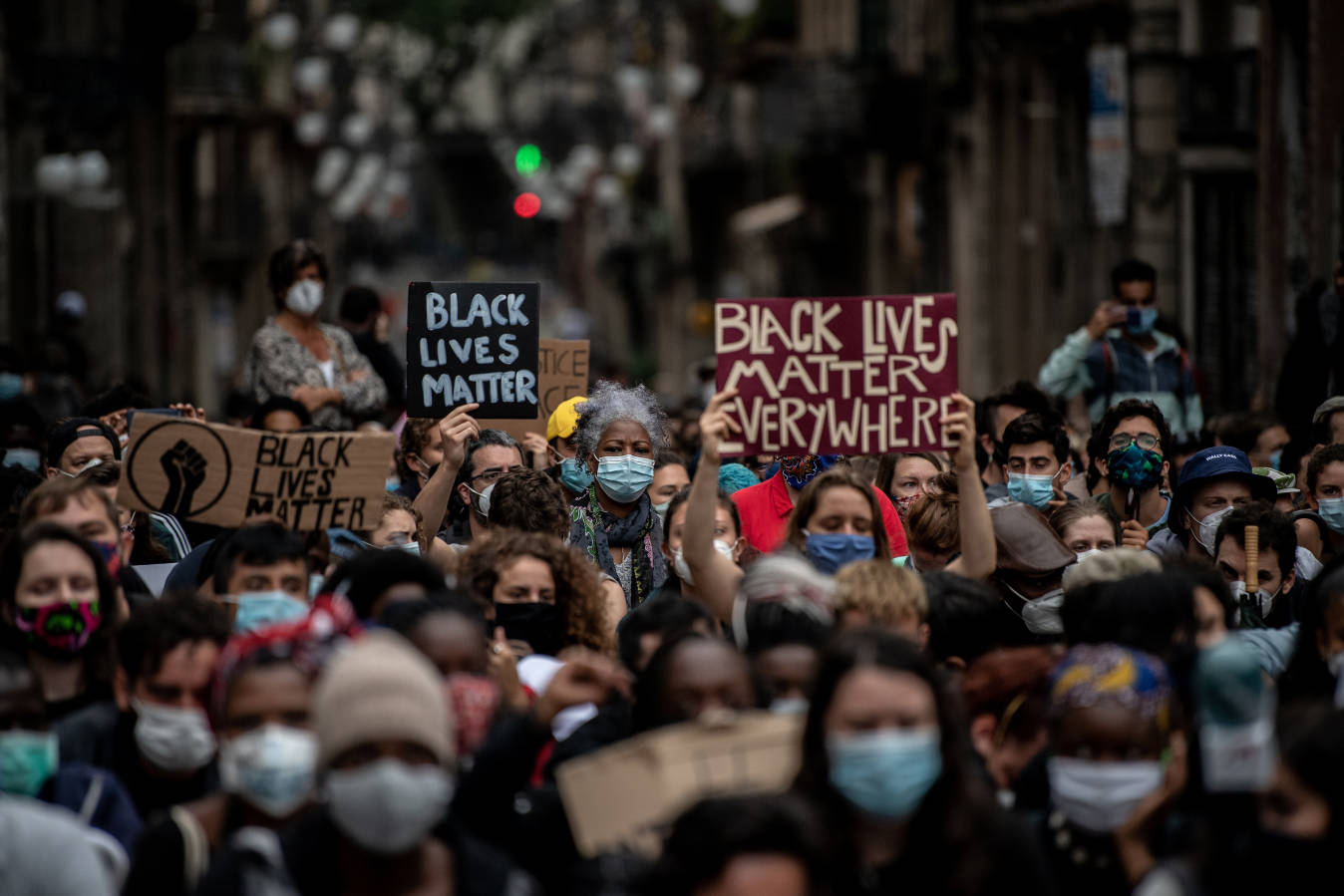
How to contain Covid-19 and manage its many impacts on the economy and society will almost certainly remain a partisan issue in 2021. Mr Biden seems to be betting that America’s best chance for recovery from the economic impacts of the pandemic are to urgently contain the spread of Covid-19. And so stricter federally-mandated containment measures seem likely in early 2021. These will almost certainly be met with resistance by conservatives who perceive that state control over their lives is growing. We doubt Mr Biden would try or be able to implement a national lockdown, despite Mr Trump’s claims during the election campaign.
Tighter control and containment measures will also require a greater state intervention in the economy. Taking advantage of Democrat control of Congress, President Biden will probably try to quickly facilitate another stimulus package on top of the $900 billion one that Congress passed in December 2020. Based on proposals from Democrats during debate for the December package, this would probably include additional support for businesses affected by the pandemic, more generous unemployment benefits, a new round of stimulus cheques to most Americans and direct financial aid to state governments.
The Covid-19 response will, in all likelihood, take precedence over almost every other issue in the first few months of the Biden presidency. A flurry of executive actions undoing contentious Trump policies – such as relaxing environmental regulations and a ban on people from Muslim-majority countries – seems likely soon after his inauguration, aimed at giving an air of a reset. But the speed at which his administration is able to implement major domestic reforms on other flagship issues such as climate change, immigration or health care will probably be determined by its ability to get tighter control of the Covid-19 crisis. Democrat control of Congress will make progress much faster when Mr Biden does turn his focus to these issues, however.
Neither protests over police violence and racial inequality, nor the Black Lives Matter movement, are likely to go away under the Biden presidency as these are deep rooted issues. And we forecast that specific incidents of police violence against people from minority backgrounds, particularly those that get widespread attention in the press or on social media, will continue to be flashpoints for sudden outbreaks of protests. This is especially so in cities such as Detroit, Los Angeles, New York and Seattle, as well as the city in which the incident occurred.
We strongly doubt that demonstrations over police violence or racial equality would re-emerge at the size and spread that occurred at times in 2020. Black Lives Matter activists have criticised Mr Biden for his past support of contentious racial policies, and his refusal to back their calls to ‘defund the police’. But we anticipate that the new president will quickly condemn any incident of police brutality, and seek to diffuse tensions, something that President Trump was plainly reluctant to do following the killing of George Floyd in Minneapolis in May 2020.
The presidential election yielded the highest number of votes in US history but further exposed the degree of polarity and hyperpartisanship that besets political discourse in America.


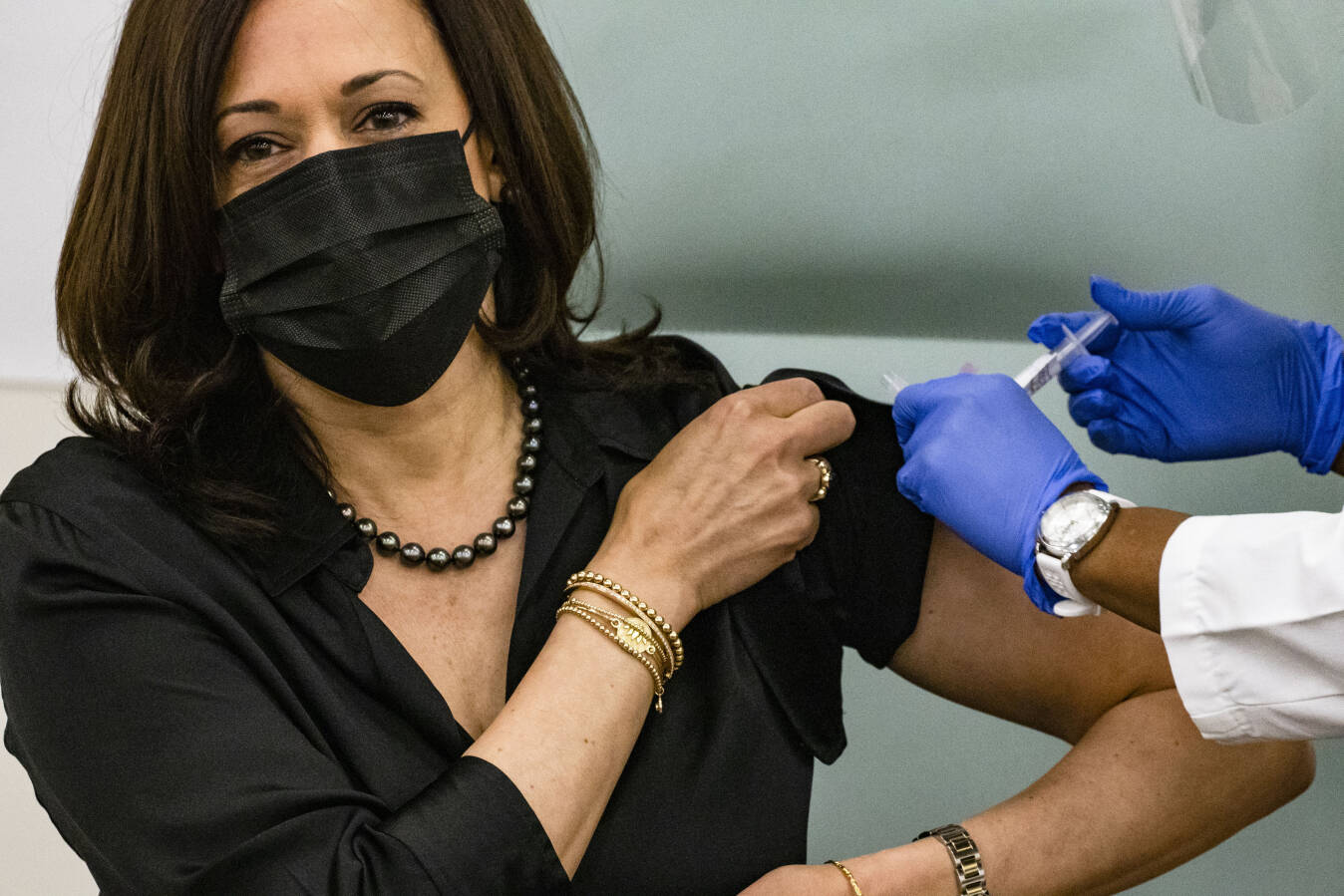

Image: David Ramos/Getty Images
Image: Samuel Corum/Getty Images
If the US is to succeed in countering China, or at least defending its dominant position as the world-leading technology-driven superpower, it will require robust alliances and shoring up US-led supranational institutions.


On matters of foreign policy, President Biden will almost certainly signal a clean break from the Trump administration and seek to assert new US leadership. A clear change in tone and rhetoric is almost a given, as is instilling a greater sense of consistency and reliability. But this will not necessarily mean abandoning all of Trump’s foreign policies. We doubt Mr Biden will forego successful policies, such as pushing NATO member states to increase defence spending, or fostering relations between Israel and Arab states. It is also very unlikely that Biden will fundamentally change direction on China as a strategic rival.
In the immediate term, President Biden will probably focus on quick wins in the first few months of his presidency, aimed at distinguishing his foreign policy from that of his predecessor. Mr Biden is far more multilateralist than Mr Trump, and rejoining the Paris Climate Agreement and World Health Organisation are predictable near-term measures. We also forecast that his early efforts will include re-engaging with Iran with a view to revisiting a nuclear deal.
US relations with China are the dominant global geopolitical risk in 2021. We anticipate that President Biden will try to reset America’s relationship with China, at least in tone. But this does not necessarily equate to a softening in US policy toward China, nor do we expect President Xi Jinping to deviate from his own strategic goals. We do not, for example, forecast that the Biden administration will lift Trump-era tariffs on Chinese goods or restrictions on Chinese technology, such as Huawei’s 5G systems. And disagreements over Hong Kong, the South China Sea, Taiwan and Xinjiang will very probably remain sources of tension between the two countries.
If the US is to succeed in countering China, or at least defending its dominant position as the world-leading technology-driven superpower, it will require robust alliances and shoring up US-led supranational institutions. Improved relations with allies will probably form a key part of President Biden’s policy towards managing adversaries such as Russia and Iran, and its primary strategic competitor China.
During his presidency, Mr Trump directly undermined or cast doubt over commitments to allies and security agreements as part of NATO and with South Korea and Japan. Mr Biden is highly likely to try to undo this damage quickly. And we forecast that reassuring allied powers of US commitment to mutual defence and security will be a key priority of Mr Biden in the first few months.
But it will take more than words to reassert the credibility of US security guarantees, of deterrence, and of its commitment to the stability and prosperity of its allies. As we survey in this Strategic Outlook, geopolitical fault lines are destabilising around the world and there are multiple potential crisis points. President Biden has an opportunity to assume a leadership role in the fight against Covid-19 and other urgent global risks such as climate change and nuclear proliferation. But there is a high chance that the credibility of US security guarantees to its allies and Mr Biden’s leadership itself will be tested, sooner rather than later.
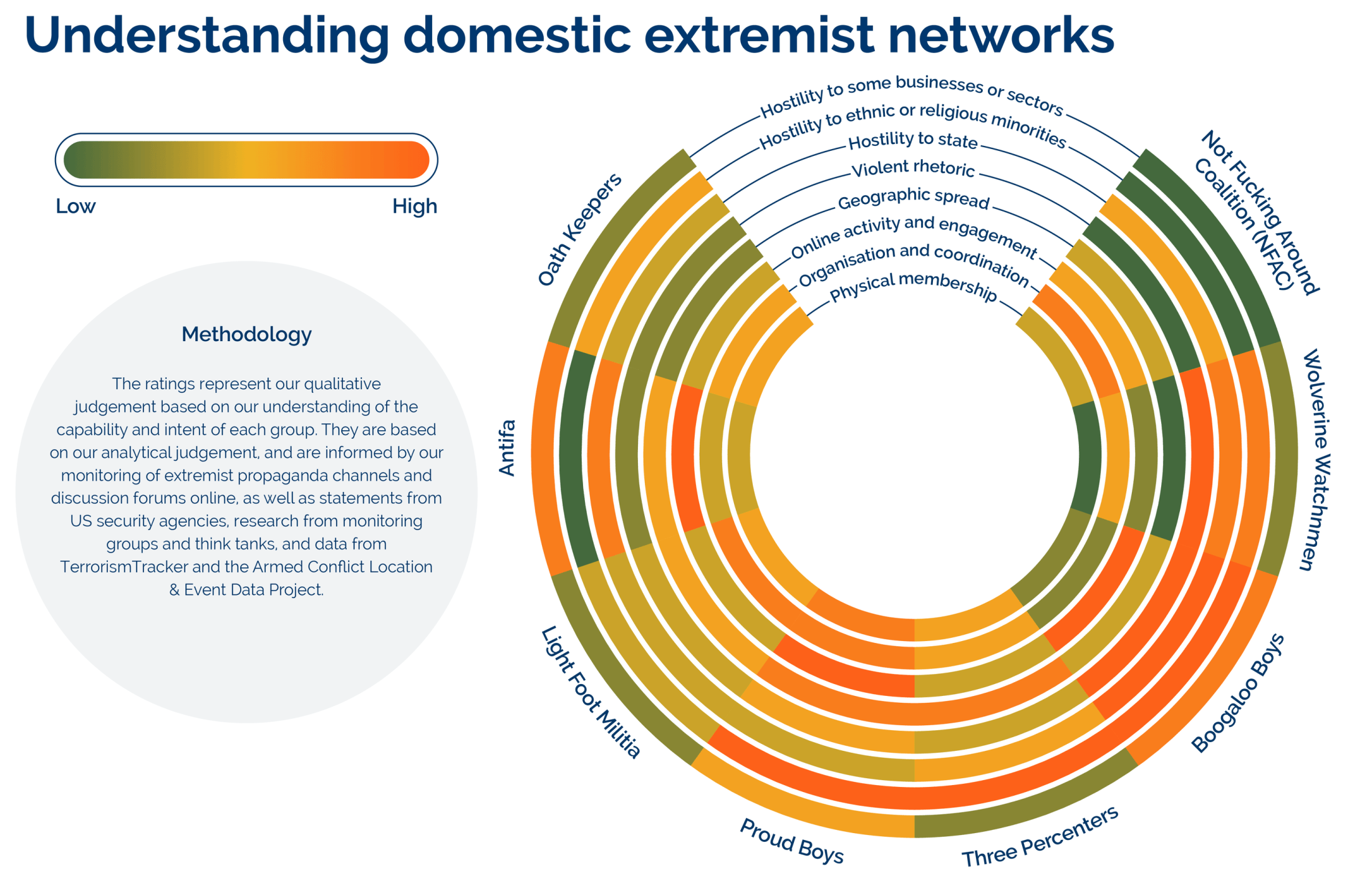

Forecasts
Right-wing terrorist attacks are likely in the US in 2021. Joe Biden’s election, Covid-19 restrictions and vaccination programmes, and protests against racism are all issues that are likely to motivate extremists and conspiracy theorists. Our monitoring of extremist propaganda suggests they are most intent on targeting ‘liberal’ politicians and their supporters, ethnic minorities, and sectors that extremists see as part of a global elite, such as media, banking and technology. Based on previous plots and attacks and extremist activity online, the threat is highest in California, Michigan, Oregon, Pennsylvania, Texas, Virginia and Wisconsin.
Domestic terrorism in the US
The Canadian prime minister, Justin Trudeau, will probably try to consolidate his position in 2021, potentially by calling an early general election. Opinion polling suggests Mr Trudeau’s Liberal Party is far more popular than any other party. But it does not hold a majority in parliament, and so relies on opposition parties to pass legislation. A state budget due in March-April is a potential flashpoint for Mr Trudeau to call a poll, particularly if the opposition tries to block it. We forecast that Mr Trudeau would win a third term at any election.
Snap election in Canada
We forecast that China will intensify its espionage measures against American commercial interests worldwide in 2021. This will probably involve more direct tactics and targeting, such as attempting to infiltrate computer systems or trying to compromise employees to steal sensitive information. Sectors in which China aims to become self-sufficient are particularly at risk of being targeted. These include aviation, space, satellite, manufacturing and pharmaceutical technology.
Chinese intelligence gathering
Forecasts


Outliers








Biden becomes a war president


Monitoring Points

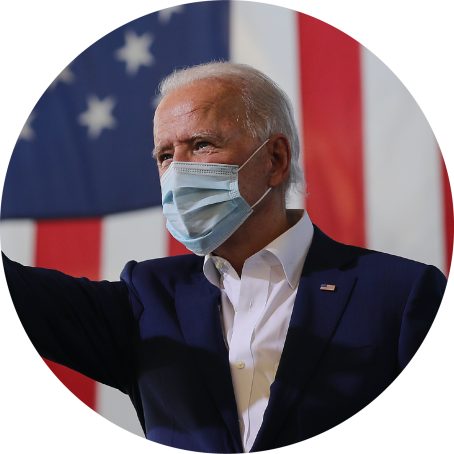


Vaccine rollout
Any delays in mass vaccinations against Covid-19 are likely to slow a recovery in economic and socio-economic conditions. US health officials have said that vaccines should be available to all Americans by the end of Q2, and that the country should see ‘some degree of normality’ by Q4. The Federal Reserve seems to have factored this into its fairly robust 4.2% growth forecast for 2021. Delays or factors that prevent the widespread take-up of inoculations would probably prolong the need for containment measures, and so undermine economic growth.
RaciAL INJUSTICE
Joe Biden’s rhetoric towards any racial injustice protests would be a key monitoring point for whether demonstrations will escalate as they did in 2020. Incidents of police violence against people from racial minorities, or legal proceedings related to them, will remain potential triggers for such protests in 2021. This is particularly if such incidents gain traction in the press or on social media. But we very much doubt demonstrations will escalate, largely because Mr Biden is likely to be far more conciliatory than his predecessor, and would probably seek to quickly diffuse tensions.
Covid-19 holding up Biden’s agenda
The speed at which the Biden administration can give the impression that it has controlled Covid-19 is likely to determine whether he can move on with other key items of his agenda. Joe Biden said during the election campaign that containing the virus will be his top priority. Congressional Republicans will probably try to use ongoing Covid-19 infections as justification for attempting to delay or block key Biden initiatives, including on voting rights, immigration and climate policy.
Images: Sam Yeh; Saul Loeb; Mario Tama; Scott Olson; Chip Somodevilla; Bryan R. Smith/Getty Images
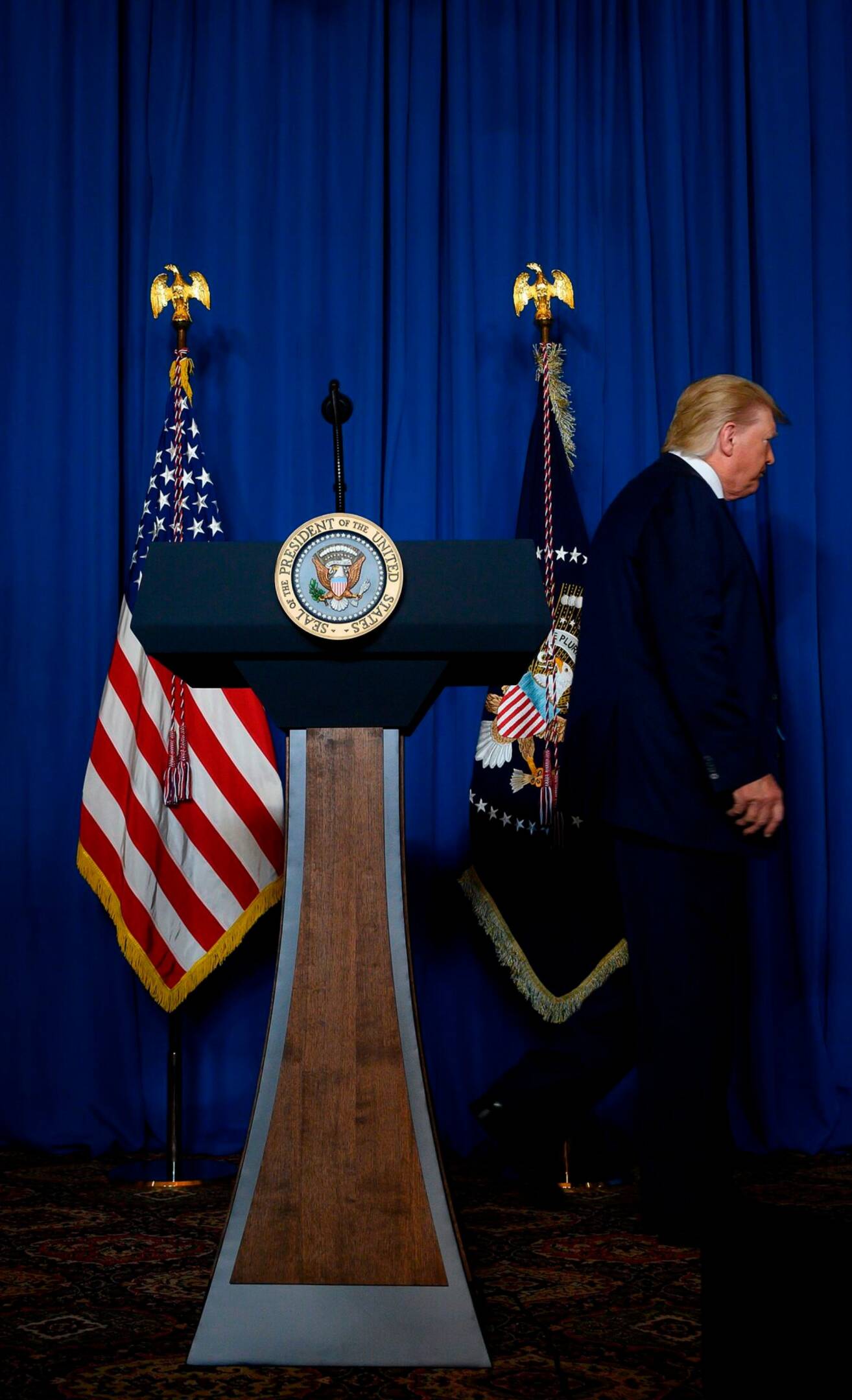

Overall trend: Worsening

CONSISTENT
WORSENING
IMPROVING
Image: Jim Watson/Getty Images
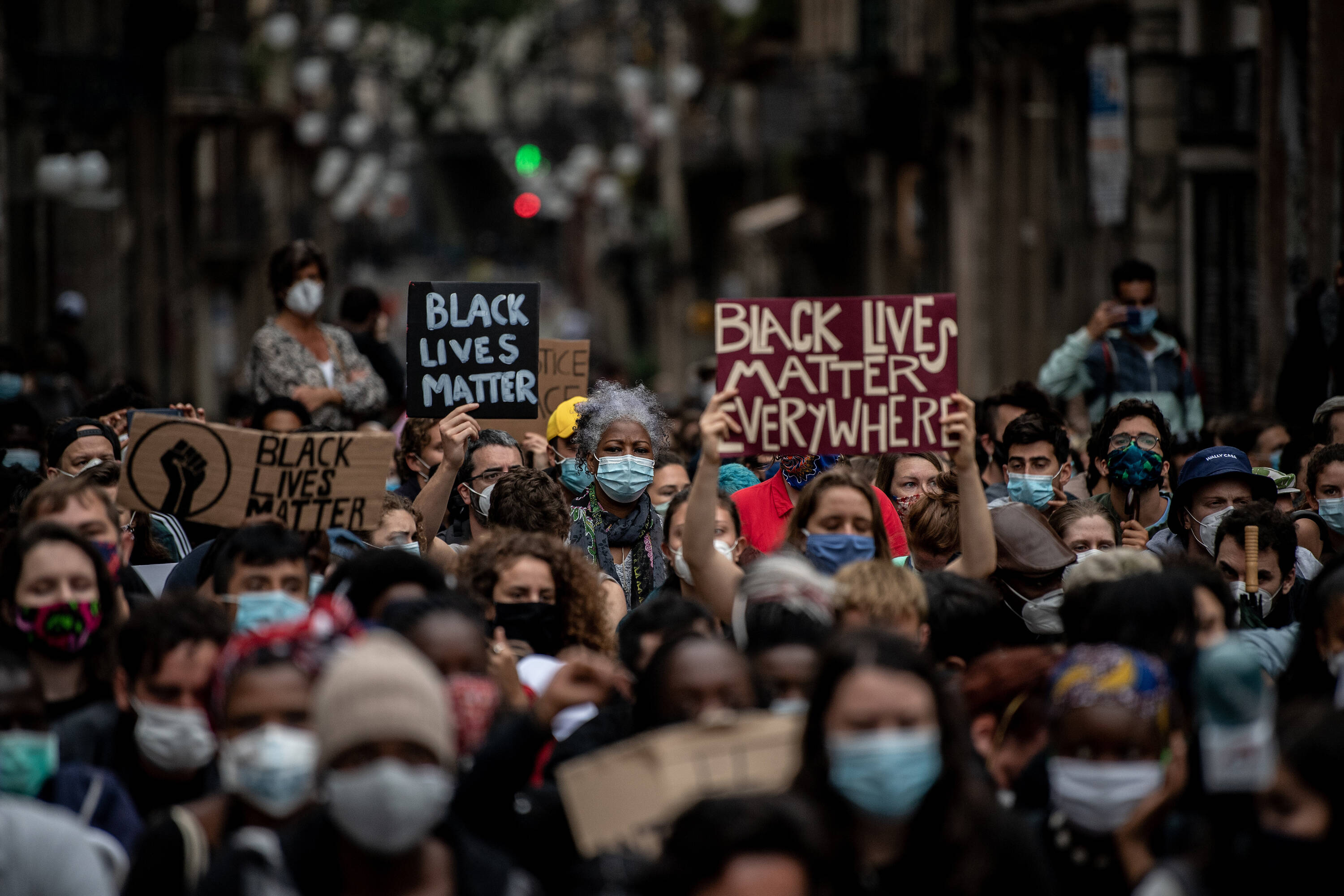
The Biden administration inherits a country in crisis, and assumes nominal global leadership at a critical point. At the time of writing, official data showed that more than 360,000 people had died in the US due to Covid-19 – more than any other country. It also leads in the total number of active cases, with almost four times as many as any
other country.
Civil disquiet marked 2020, with more than 18,000 protests taking place across the country, according to our partner, the Armed Conflict Location & Event Data Project. The presidential election yielded the highest number of votes in US history but further exposed the degree of polarity and hyperpartisanship that besets political discourse in America. On the global stage US alliances have frayed and US-led-multilateral institutions are weakening.
Mr Trump’s political style has served as an aggravator and unsettler in domestic and foreign policy issues since 2016. In foreign policy, his comments on Twitter and other unscripted remarks about actors such as NATO or South Korea have undermined the US’ commitment to its allies, and with it the foreign policy linchpin of credible deterrence and security guarantees. His firebrand rhetorical style has also exacerbated domestic crises. His refusal to acknowledge the legitimacy of the demands of racial inequality protesters worsened social tensions in 2020, as but one such example.
The tone of the Biden administration in its dealings at home, and indeed abroad, is likely to be radically different to that of Mr Trump. And it seems likely that a key objective of Mr Biden will be to rebuild faith in government and a sense of national unity in crisis. Besides the election and its controversies, the key drivers of tumult in the US in 2020 were the pandemic, its effect on the economy, and racial inequality. A vaccine for Covid-19 currently looks on track to be widely available by mid-2021, but it is highly unlikely that Mr Biden will be able to nullify the other two issues. Restoring a perception that the government is addressing them will probably mean they are less explosive on the streets.
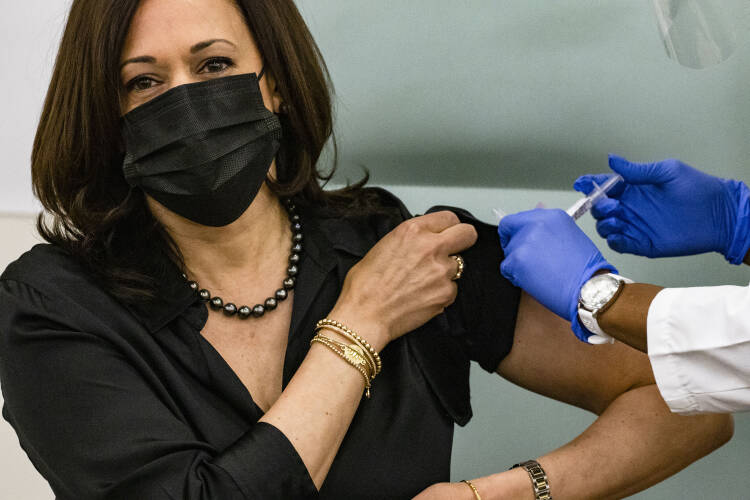
How to contain Covid-19 and manage its many impacts on the economy and society will almost certainly remain a partisan issue in 2021. Mr Biden seems to be betting that America’s best chance for recovery from the economic impacts of the pandemic are to urgently contain the spread of Covid-19. And so stricter federally-mandated containment measures seem likely in early 2021. These will almost certainly be met with resistance
by conservatives who perceive that state control
over their lives is growing. We doubt Mr Biden would try or be able to implement a national lockdown, despite Mr Trump’s claims during the election campaign.
Tighter control and containment measures will also require a greater state intervention in the economy. Taking advantage of Democrat control of Congress, President Biden will probably try to quickly facilitate another stimulus package on top of the $900 billion one that Congress passed in December 2020. Based on proposals from Democrats during debate for the December package, this would probably include additional support for businesses affected by the pandemic, more generous unemployment benefits, a new round of stimulus cheques to most Americans and direct financial aid to state governments.
The Covid-19 response will, in all likelihood, take precedence over almost every other issue in the first few months of the Biden presidency. A flurry of executive actions undoing contentious Trump policies – such as relaxing environmental regulations and a ban on people from Muslim-majority countries – seems likely soon after his inauguration, aimed at giving an air of a reset. But the speed at which his administration is able to implement major domestic reforms on other flagship issues such as climate change, immigration or health care will probably be determined by its ability to get tighter control of the Covid-19 crisis. Democrat control of Congress will make progress much faster when Mr Biden does turn his focus to these issues, however.
Neither protests over police violence and racial inequality, nor the Black Lives Matter movement, are likely to go away under the Biden presidency as these are deep rooted issues. And we forecast that specific incidents of police violence against people from minority backgrounds, particularly those that get widespread attention in the press or on social media, will continue to be flashpoints for sudden outbreaks of protests. This is especially so in cities such as Detroit, Los Angeles, New York and Seattle, as well as the city in which the incident occurred.
We strongly doubt that demonstrations over police violence or racial equality would re-emerge at the size and spread that occurred at times in 2020. Black Lives Matter activists have criticised Mr Biden for his past support of contentious racial policies, and his refusal to back their calls to ‘defund the police’. But we anticipate that the new president will quickly condemn any incident of police brutality, and seek to diffuse tensions, something that President Trump was plainly reluctant to do following the killing of George Floyd in Minneapolis in May 2020.
Image: Samuel Corum/Getty Images
Image: David Ramos/Getty Images
The presidential election yielded the highest number of votes in US history but further exposed the degree of polarity and hyperpartisanship that besets political discourse in America.


We forecast a renewed campaign of misinformation and disinformation from both China and Russia early this year, aimed at exacerbating risks around social upheaval and popular discontent over how governments have handled the pandemic.


On matters of foreign policy, President Biden will almost certainly signal a clean break from the Trump administration and seek to assert new US leadership. A clear change in tone and rhetoric is almost a given, as is instilling a greater sense of consistency and reliability. But this will not necessarily mean abandoning all of Trump’s foreign policies. We doubt Mr Biden will forego successful policies, such as pushing NATO member states to increase defence spending, or fostering relations between Israel and Arab states. It is also very unlikely that Biden will fundamentally change direction on China as a strategic rival.
In the immediate term, President Biden will probably focus on quick wins in the first few months of his presidency, aimed at distinguishing his foreign policy from that of his predecessor. Mr Biden is far more multilateralist than Mr Trump, and rejoining the Paris Climate Agreement and World Health Organisation are predictable near-term measures. We also forecast that his early efforts will include re-engaging with Iran with a view to revisiting a nuclear deal.
US relations with China are the dominant global geopolitical risk in 2021. We anticipate that President Biden will try to reset America’s relationship with China, at least in tone. But this does not necessarily equate to a softening in US policy toward China, nor do we expect President Xi Jinping to deviate from his own strategic goals. We do not, for example, forecast that the Biden administration will lift Trump-era tariffs on Chinese goods or restrictions on Chinese technology, such as Huawei’s 5G systems. And disagreements over Hong Kong, the South China Sea, Taiwan and Xinjiang will very probably remain sources of tension between the two countries.
If the US is to succeed in countering China, or at least defending its dominant position as the world-leading technology-driven superpower, it will require robust alliances and shoring up US-led supranational institutions. Improved relations with allies will probably form a key part of President Biden’s policy towards managing adversaries such as Russia and Iran, and its primary strategic competitor China.
During his presidency, Mr Trump directly undermined or cast doubt over commitments to allies and security agreements as part of NATO and with South Korea and Japan. Mr Biden is highly likely to try to undo this damage quickly. And we forecast that reassuring allied powers of US commitment to mutual defence and security will be a key priority of Mr Biden in the first few months.
But it will take more than words to reassert the credibility of US security guarantees, of deterrence, and of its commitment to the stability and prosperity of its allies. As we survey in this Strategic Outlook, geopolitical fault lines are destabilising around the world and there are multiple potential crisis points. President Biden has an opportunity to assume a leadership role in the fight against Covid-19 and other urgent global risks such as climate change and nuclear proliferation. But there is a high chance that the credibility of US security guarantees to its allies and Mr Biden’s leadership itself will be tested, sooner rather than later.
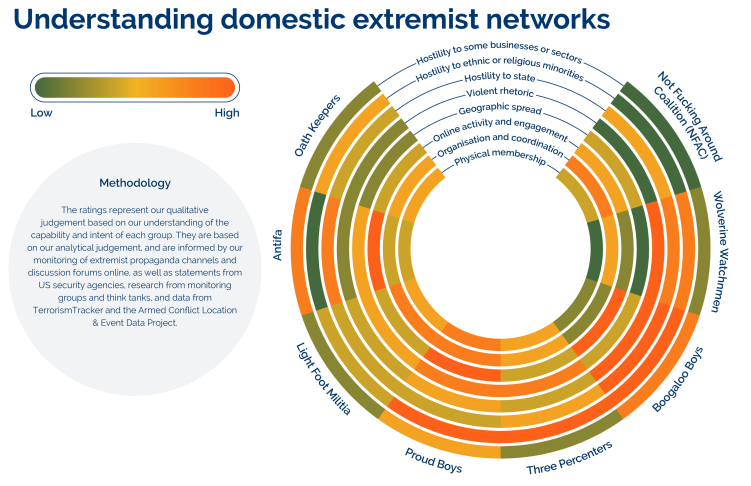
Forecasts
We forecast that China will intensify its espionage measures against American commercial interests worldwide in 2021. This will probably involve more direct tactics and targeting, such as attempting to infiltrate computer systems or trying to compromise employees to steal sensitive information. Sectors in which China aims to become self-sufficient are particularly at risk of being targeted. These include aviation, space, satellite, manufacturing and pharmaceutical technology.
Chinese intelligence gathering
Right-wing terrorist attacks are likely in the US in 2021. Joe Biden’s election, Covid-19 restrictions and vaccination programmes, and protests against racism are all issues that are likely to motivate extremists and conspiracy theorists. Our monitoring of extremist propaganda suggests they are most intent on targeting ‘liberal’ politicians and their supporters, ethnic minorities, and sectors that extremists see as part of a global elite, such as media, banking and technology. Based on previous plots and attacks and extremist activity online, the threat is highest in California, Michigan, Oregon, Pennsylvania, Texas, Virginia and Wisconsin.
Domestic terrorism in the US
The Canadian prime minister, Justin Trudeau, will probably try to consolidate his position in 2021, potentially by calling an early general election. Opinion polling suggests Mr Trudeau’s Liberal Party is far more popular than any other party. But it does not hold a majority in parliament, and so relies on opposition parties to pass legislation. A state budget due in March-April is a potential flashpoint for Mr Trudeau to call a poll, particularly if the opposition tries to block it. We forecast that Mr Trudeau would win a third term at any election.
Snap election in Canada

Outliers







Monitoring Points


Biden becomes a war president


The speed at which the Biden administration can give the impression that it has controlled Covid-19 is likely to determine whether he can move on with other key items of his agenda. Joe Biden said during the election campaign that containing the virus will be his top priority. Congressional Republicans will probably try to use ongoing Covid-19 infections as justification for attempting to delay or block key Biden initiatives, including on voting rights, immigration and climate policy.
Covid-19 holding up Biden’s agenda
Vaccine rollout
Any delays in mass vaccinations against Covid-19 are likely to slow a recovery in economic and socio-economic conditions. US health officials have said that vaccines should be available to all Americans by the end of Q2, and that the country should see ‘some degree of normality’ by Q4. The Federal Reserve seems to have factored this into its fairly robust 4.2% growth forecast for 2021. Delays or factors that prevent the widespread take-up of inoculations would probably prolong the need for containment measures, and so undermine economic growth.
Joe Biden’s rhetoric towards any racial injustice protests would be a key monitoring point for whether demonstrations will escalate as they did in 2020. Incidents of police violence against people from racial minorities, or legal proceedings related to them, will remain potential triggers for such protests in 2021. This is particularly if such incidents gain traction in the press or on social media. But we very much doubt demonstrations will escalate, largely because Mr Biden is likely to be far more conciliatory than his predecessor, and would probably seek to quickly diffuse tensions.
RaciAL INJUSTICE

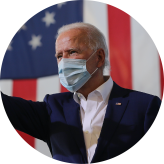

Images: Sam Yeh; Saul Loeb; Mario Tama; Scott Olson; Chip Somodevilla; Bryan R. Smith/Getty Images


